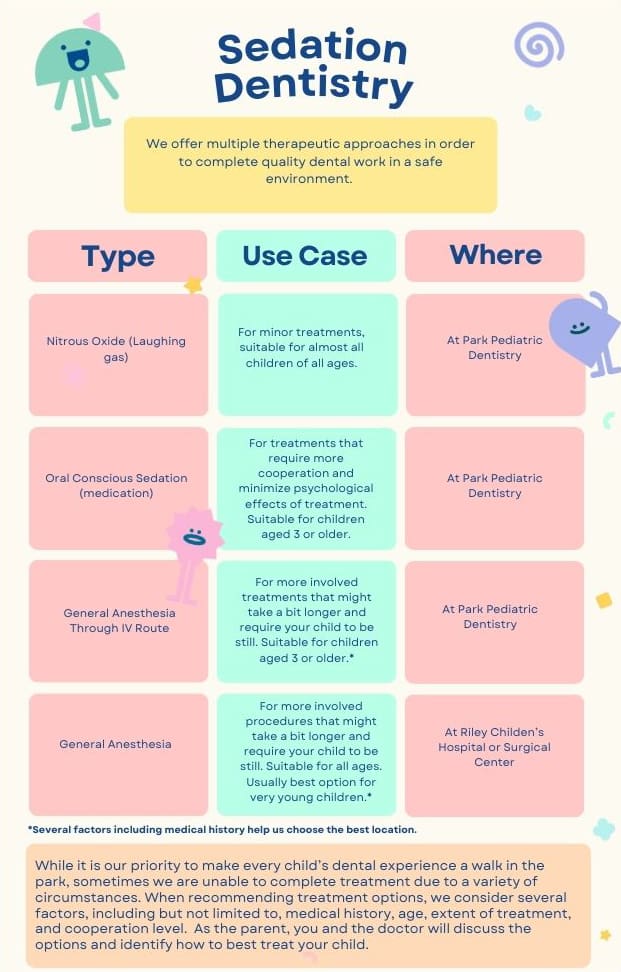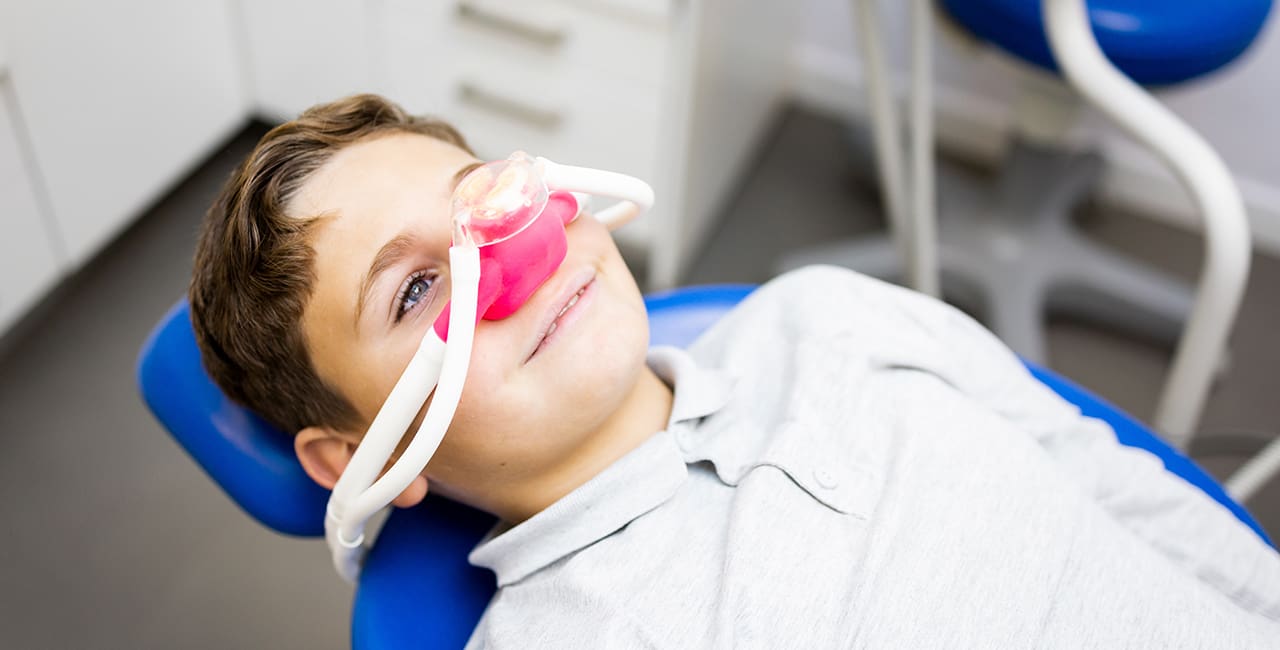Benefits of Pediatric Sedation Dentistry
- Reduced anxiety: Sedation helps calm fear and anxiety, creating a more positive dental experience.
- Patient Safety: Sedation allows for greater control over the child’s movements, ensuring their safety during complex procedures. This is especially helpful in children who are unable to cooperate because of special needs or delayed development.
- Efficient treatment: With sedation, we can perform more dental procedures at one time. That means less time off work and school!

Types of Pediatric Dental Sedation
We offer three types of dental sedation at our offices in Greenwood and Plainfield, IN: Nitrous oxide, oral conscious sedation and general anesthesia.
Nitrous Oxide Sedation
If your child feels anxious or nervous about visiting the dentist, nitrous oxide can help ease those pesky nerves. Commonly known as “laughing gas,” nitrous oxide is a mild sedative and pain-reducer administered through a small mask placed over your child’s nose. It takes effect quickly, and the effects wear off just as fast, allowing your child to resume normal activities after the appointment.
Oral Conscious Sedation
Oral conscious sedation involves giving your child medication in liquid or pill form to induce relaxation and reduce fear during dental procedures. This type of sedation does not put your child to sleep but instead helps them stay calm and comfortable throughout the visit.
General Anesthesia
For extensive dental procedures or children who require deep sedation, general anesthesia may be the best option. Administered in our dental office or at Riley Children’s Hospital, general anesthesia ensures the child remains in a deep sleep throughout the procedure. The decision on where the procedure will be performed will be based on the child’s medical history, age, the extent of their treatment, and their cooperation level.
Deciding the Appropriate Level of Sedation
Dr. Lesa and Dr. Andrew, our board-certified pediatric dentists, will determine the most suitable form of sedation based on several factors:
- Medical History: An assessment of the child’s health history and any underlying conditions.
- Age: Younger children may require different sedation options compared to older children.
- Extent of Treatment: The complexity and length of the required dental procedures.
- Cooperation Level: The child’s comfort and readiness for treatment.
Safety Protocols
We prioritize patient safety by ensuring all sedation medications are administered by experienced professionals. Our dental anesthesiologist has the training, expertise, and equipment ready to keep your child safe. He closely monitors your child while we complete the necessary dental treatments.
🔑Key Takeaway
Pediatric sedation dentistry is a safe and effective option for children who are scared or nervous about dental treatments. It helps create a positive dental experience, which is vital for establishing good oral health habits in the future. We offer nitrous oxide, oral sedation and general anesthesia to accommodate each child’s unique needs.
FAQs About Pediatric Dental Sedation
What kind of sedation is used in pediatric dentistry?
Nitrous oxide is the most common form of sedation used in pediatric dentistry. It is especially effective for younger patients. Other options include oral conscious sedation and general anesthesia.
Is pediatric dental sedation safe?
Yes, pediatric dental sedation is safe when administered by experienced professionals like our board-certified pediatric dentists and dental anesthesiologist. We follow all safety protocols to ensure your child’s well-being during the procedure.
How do I prepare my child for a visit that involves sedation?
We will provide detailed instructions on how to prepare your child for their sedation appointment. This may include fasting for a certain period, depending on the type of sedation used. Explain to your child that they will be having a procedure, but they will feel sleepy and won’t be aware of what is going on. If they are receiving general anesthesia, explain that they will have some medicine that will help them to have a really good sleep. When they wake up their teeth will be all fixed!

